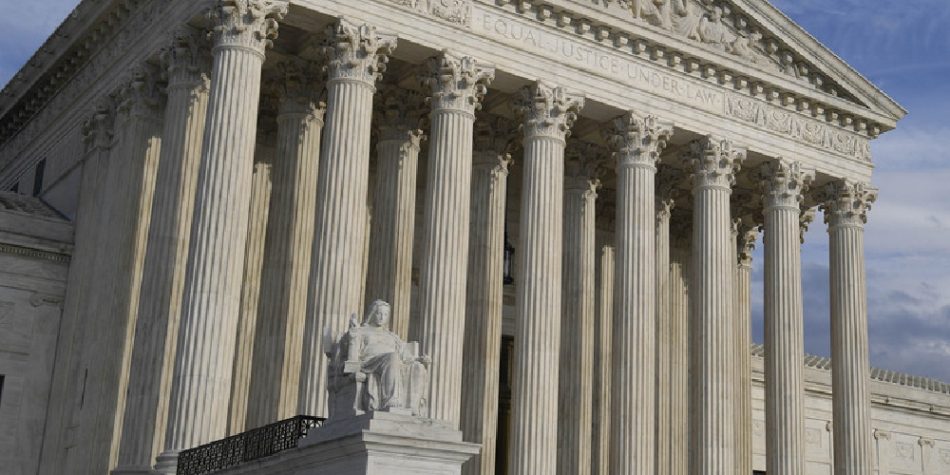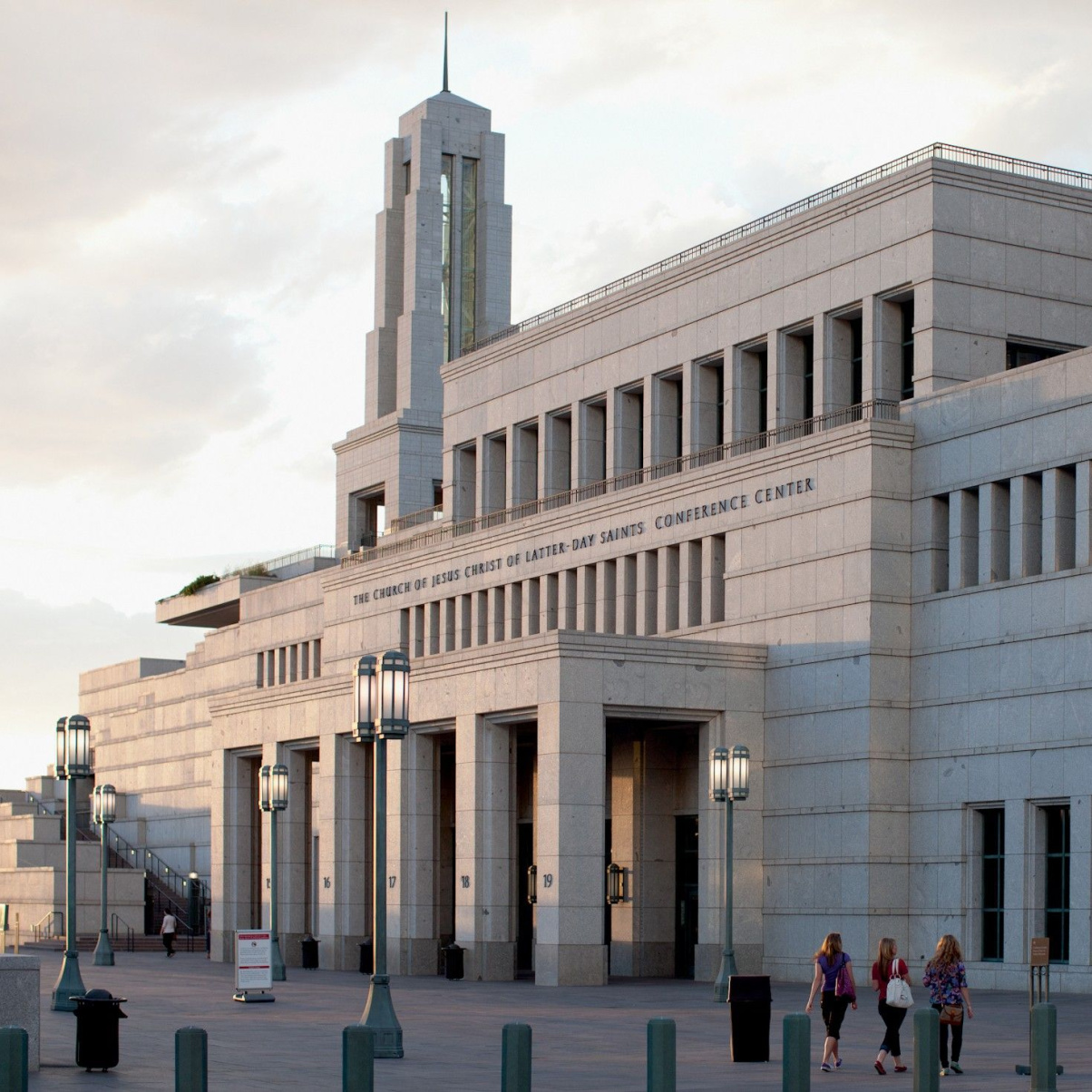May 7th will likely go down as a historic and dark day in the history of the United States. Future generations are likely to see it as a day we stepped closer to the edge. It isn’t the first.
Days earlier a draft of a Supreme Court opinion about abortion was released to the public. Journalists and academics began to call for violence:
Referring to the Supreme Court, Patricia Sauthoff of the University of Alberta raged:

Ian Millhiser of Vox added:

And responding to potential threats on Justices of the court, Aída Chávez of The Nation said simply:

Under the false impression that the ruling would take away abortion rights, and goaded on by some of the most powerful voices in the country, protestors decided to undermine the rule of law.
In an attempt to influence the justices, the organization “Ruth Sent Us” published the home addresses of the Supreme Court Justices. And organized protests and parades past their homes.
When the plans were revealed, the President’s press secretary said blithely, “I don’t have an official U.S. government position on where people protest.”
At the time, this effectively communicated that protestors were free to violate title 18 section 1507 of the US Code that you cannot “with the intent of influencing any judge … picket or parade in or near a … residence occupied or used by such judge.”
While the White House later released a statement clarifying that “Violence, threats, and intimidation have no place in political discourse,” the whirlwind had already been unleashed. One of the leaders of the protest said, “The time for civility is over”—all of this amid the backdrop of murder threats against two of the justices.
As many observers have pointed out, attempting to intimidate Supreme Court Justices to change their understanding of the law fundamentally undermines the rule of law at the heart of our country. Using intimidation tactics as these protestors did creates grave instability for the Supreme Court.
But to undermine our nation’s institutions in this way, you almost certainly had to have been misled on the underlying facts. And that appears to be the case here.
Another big lie. These alarming attacks that are undermining the institution of the Supreme Court are based on the premise that the current members of the court are illegitimate. Much of today’s rhetoric is tied up in the assertion that Mitch McConnel’s treatment of the Merrick Garland nomination was unprecedented. The claim arose frequently in our legacy media without pushback or correction. The narrative became so prominent that the L.A. Times even reported that “Remember Merrick Garland” had become a rallying cry.
The trouble with this narrative, simply put, is that it’s not true.
Rejecting a Supreme Court nominee is not uncommon, thirty-four (or nearly a quarter of nominees) have been rejected. It’s not even uncommon for a potential justice to not receive a vote, which occurred on twenty-three of those thirty-four occasions.
McConnell’s maneuver wasn’t all that unusual; what was unusual was the refusal of President Barack Obama to send another nominee to the court. To be fair to the journalists, they were pointing to the reality that McConnell announced he would not vote on Garland. And it’s true that a non-vote hadn’t been announced before. So in other words, what was “unprecedented” wasn’t what McConnell did, but merely that he said he was going to do it. Unsurprisingly, that nuance hasn’t quite survived into the popular imagination.
Nonetheless, the widespread insistence that something untoward had happened has had a big effect on delegitimizing the court in the public’s mind. Today it’s a regular occurrence to read journalists’ reports that Republicans had “packed” the Supreme Court. This is an outright misrepresentation arguably meant not only to galvanize sentiment and mobilize voters but also to justify further tinkering of the Court by the left.
In fact, contrary to many assertions (and insistence that the court now functions as an institution of “religious tyranny” and “state-enforced theocracy”), the Supreme Court’s makeup looks about the way we should expect it to. During the time the current justices have been appointed to the court, Republicans have held power in the Senate (the body that votes on Supreme Court justices) more than 60% of the time. The Supreme Court’s makeup is not an anti-democratic fluke, but about what we should expect given the voting trends in our democratic republic.
But journalists from the most powerful newspapers in the country are doubling down on delegitimizing the Supreme Court and with it the rule of law in our country.
EJ Dionne Jr in The Washington Post describes the Supreme Court’s “radicalism” and asserts it is now “anti-democratic.” And reliably he bases this premise on the big lie that there was a conservative “seizure of the court.”
Charles Blow tells a very similar story in the New York Times, calling the Court “an instrument of oppression.” He goes on to complain that conservative justices can “overrule the will of the majority.” And just as Dionne did, Blow bases his narrative on the big lie, claiming inaccurately that McConnell “stole” a Supreme Court seat.
And these powerful attacks intended to undermine the rule of law are working. Polls out today show that this big lie has become so pervasive that confidence in the Supreme Court is reaching a nadir.
Undermining institutions that don’t agree with us. Complaining that the Supreme Court isn’t democratic is kind of like complaining that your bicycle’s spell check isn’t working. I guess it could be true if you look at it in a certain way, but it mostly just doesn’t make sense—that’s not how courts are supposed to function. The court’s role is to support the rule of law, not majority rule. Majority rule and the rule of law play important complementary roles in our system of government. And the Supreme Court’s narrow role is to be almost entirely immune from majority whims.
Even so, many are now expressing outrage that the Supreme Court may reach a conclusion that doesn’t align with the American population’s consensus opinion. Yet in the years before Roe v. Wade, the country overwhelmingly opposed legalized abortion.
This is not the only time such a discrepancy would exist. In 1959 the majority of Americans didn’t support the ruling in Brown v. Board of Education. And the year after Loving v. Virginia, more than 7 in 10 Americans didn’t support white-non-white marriage. The Supreme Court not being compelled to follow popular whims is a feature that has led to some of the most important progress in our nation’s history.
And not to belabor the point, but current polling shows that Americans don’t currently support Roe’s position that abortion be allowed until week 24. In fact, according to this poll, Americans currently feel that the cut-off for abortion should be about where Mississippi, the defendant in the current case, has placed it at 15 weeks. While the Supreme Court should not be beholden to popular approval, the reality, in this case, is that their opinion happens to match societal opinion far more than is being acknowledged. Commentators who suggest the court is out of step with democracy only manage to do so by misstating that the Supreme Court’s ruling will outlaw abortion.
Big lies across the political spectrum. If undermining the institutions that uphold our country’s values based on a big lie sounds a bit familiar, you wouldn’t be wrong. Parading in front of Supreme Court Justices’ homes to intimidate them into violating their oaths is as seriously disruptive to the administration of our government as were protesters forcing their way into the Capital to prevent the certification of the 2020 presidential election.
The January 6th insurrection was similarly based on a manufactured fiction—this time promoted not by powerful legacy media outlets, but by media startups doing anything they could to try and find an audience. Just like today’s Supreme Court agitators who inaccurately believe the Supreme Court is illegitimate, those earlier agitators inaccurately believed the election was illegitimate and therefore democracy was at risk. In both cases, they undermined the very principles they claimed to want to uphold because they did not see the world as it really was.
For times such as these, N. Eldon Tanner advised “There is no reason or justification for men to disregard or break the law or try to take it into their own hands.” Furthermore, speaking to Latter-day Saints many years ago, President Joseph Fielding Smith taught:
No member of the Church can be accepted as in good standing whose way of life is one of rebellion against the established order of decency and obedience to law. We cannot be in rebellion against the law and be in harmony with the Lord, for he has commanded us to ‘be subject to the powers that be, until he reigns whose right it is to reign. …’ And one of these days he is going to come.
It was Erastus Snow who noted a century ago that anarchy was the opposite of “true liberty— arguing that “The imbecility and sometimes stupidity of a republic like our own, is far better than no government at all.”
In the wake of the January 6th attack, you couldn’t fall over without hitting an article talking about the troubling authoritarianism at work in trying to undermine democracy. Yet the silence this last week from many of these same journalists has been deafening.
Earlier this year, Dionne boldly called out the lies at the heart of undermining the presidential election and its corroding effect on our institutions, describing January 6th as an attempt to “rig an election.” Yet this week he seems naive to the fact that he is now advocating trying to rig the rule of law.
And Charles Blow seems to have forgotten that last year he wrote, “the rule of law has to apply to everyone” to justify calling for punishment of those who believe in what he calls “the big lie.”
But because they have both believed the other big lie about an illegitimate Supreme Court, they now feel free to attack it as an institution without even appreciating the hypocrisy at play.
Resisting the anti-democratic drift across the world. While many have linked attempts to undermine the election to authoritarianism, today’s authoritarians just as frequently undermine their judiciaries. Viktor Orbán, the Hungarian Prime Minister, has taken his country towards authoritarianism by delegitimizing the country’s court and creating a more powerful secondary court system staffed with his loyalists. But perhaps the most similar incident to the recent attack on the Supreme Court by legacy media, scholars, and activists has been witnessed in Poland.
Poland has seen a descent into increasing authoritarianism since Poland’s Law and Justice Party took control in 2015. One of the major platforms in this movement has been party leaders complaining about the undue influence of communists in the nation’s highest court. They argue that this requires them to change rules for how long judges serve in order to change the ideological balance of the court to align more with their own party’s goals. Sound familiar? The Washington Post, New York Times, and others on the American left appear to be reading from the same authoritarian playbook.
As Americans, our way of life is only possible because of the rule of law and the rule of the people. We’ve appropriately built up institutions to help ensure the survival of those principles, but when we so readily undermine those institutions in the wake of results we don’t like (be that elections we don’t like, laws we don’t like, or court rulings we don’t like), we’ve set ourselves on a path that may be difficult to recover from.
President Dallin H. Oaks has repeatedly spoken of the importance of the rule of law and respectful deference that includes fairness for all, stating “We should not seek total dominance for our own position; we should seek fairness for all. … The goals of both sides are best served by resolving differences through mutual respect, shared understanding, and good faith negotiations. And both must accept and respect the rule of law. Without acceptance of such ethical and political fundamentals on all sides, we are unlikely to move forward with this vital task.”
Evidence suggests we are not moving closer to that end. Rather, it seems we may be moving towards a death spiral where each partisan side is so focused on their next win, that they keep trying to one-up the other side’s previous violation of the norms that hold our nation together.
We need to step back from the edge.

















